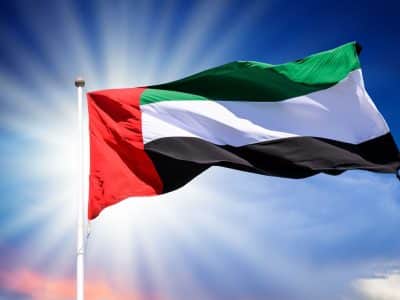The case of a British 74-year-old pensioner who is facing 350 lashes after he was caught with bottles of homemade wine in Saudi Arabia has highlighted the extraordinary risk expats in the kingdom are prepared to take to get hold of a drop of alcohol in the notoriously strict Islamic state.
Amidst the public backlash in the UK, David Cameron’s government announced on Tuesday it had withdrawn its bid for a £5.9 million ($8.98 million) contract with Saudi Arabia to supply training to the kingdom’s prison services.
However, behind the diplomatic standoff, many expats in Saudi Arabia have viewed the case as tragic and unfortunate but will not be surprised by the news that alcohol consumption is rife among their compatriots.
While the UK Foreign Office states that consumption of alcohol is illegal and the “penalties for the possession of, or trade in alcohol are severe,” many expats choose to ignore the warnings.
Those caught consuming alcohol face up to 500 lashes, jail and/or deportation and Saudi authorities often carry through with the floggings. Peter Mutty, an Australian engineer, was caught last year with two cartons of beer, one box of red wine and one box of white wine in his car while driving to his home in Riyadh. He was sentenced to six months jail and 75 lashes. He received 28, but Mutty’s main criticism was his claim that he was not fairly treated, as other expats caught for the same crime were simply deported.
The Sydney native also gave an insight into life as an expat in Saudi Arabia: “The way life works here for expats is all of us live on compounds and those compounds are secure. If you know someone on other compounds, you go to their compound in your car… You take some food and some nibbles and some alcohol [back home], and every time you run the risk. It’s very unusual expats get stopped by the police here… [but] on this particular day, we got stopped,” he told the Daily Mail Australia.
Despite his ordeal, Mutty does not blame Saudi authorities: “I would have no problem coming back to Saudi Arabia to work… I knew the laws of the country. I signed a document that I understood the laws and the alcohol ban was listed, so in other words I knew what I was doing and getting myself into.”
So how do the expats get hold of the alcohol? Former Saudi expats who spoke to Arabian Business said the raw ingredients to make homebrewed alcoholic drinks, such as grapefruit juice, sugar, non-alcoholic beer and yeast are readily available in local supermarkets. They also state that many diplomatic areas and buildings often readily possess alcoholic drinks, likely brought in under diplomatic immunity.
A report by research analysts at Euromonitor International found there was a growing demand for non or low alcohol beer in Saudi Arabia, with many hypermarkets and supermarkets offering promotions and multipack offers. Combining these non-alcoholic brands with supermarket-bought ingredients to boost their alcoholic content is easily achieved, one expat pointed out.
However, one Dubai-based former Saudi expat said homebrews were usually only found in western compounds as having homemade wine or beer in your apartment in the cities or open suburbs was “a massive risk.”
With bottles of alcohol, such as vodka, changing hands for as much as $150, the underground trade in the kingdom is rife. In 2003, a group of British expats were sentenced to be beheaded after they were found to be involved in a bloody turf war among rival gangs who sought to control the lucrative bootleg alcohol trade. Following an intervention by the London government, they were pardoned by the late King Fahd.
However, despite the high risks, the illegal trade still continues. Only last month, Abu Dhabi customs officials seized over 30,000 bottles of alcohol in a lorry at the UAE border with Saudi Arabia. Using scanning equipment, the officials found the illegal stash of alcohol in crates that were marked as apples.
Some expats take the ultimate risk, such as the case last month of a man who was stopped by Saudi customs officials travelling back from Bahrain. When searched he was found with 12 bottles of alcohol stitched into his trousers.
There is little official data on the level of consumption in the kingdom, but figures from the World Health Organisation (WHO) estimate that projected alcohol consumption per capita in Saudi Arabia is 0.34 litres of pure alcohol per person per year. By comparison, it is 0.52 litres per person per year in the UAE and 13.24 litres per person per year in the UK.
A 2003 WHO report on alcohol also highlighted some interesting facts and figures. It estimated that the extent of alcohol use in Saudi Arabia is “considerable” and that data from the last five years suggested a stable trend in its the use.
It also pointed to a cross-sectional study conducted in a hospital in Riyadh in March 1998 of 160 male patients aged 20 years or older which found that alcohol was used by 23.75 percent of the patients.
With the consumption of alcohol focused on homebrews and smuggled stock, the WHO highlighted the health risks involved. In a study of 120 male inpatients in a hospital for treatment of male substance abusers in Dammam in Saudi Arabia’s eastern region, WHO said it was found that 12.5 percent of the sample abused alcohol singularly.
One thing that may surprise many is that Alcoholics Anonymous (AA) meetings are held in Saudi Arabia and some compounds have rehabilitation clinics which are clearly labelled.
An organiser who spoke to Arabian Business said the meetings had a broad range of nationalities attending, including local Saudis. A trend they also pointed out was the growth of meetings for women only, with the AA leader pointing out that alcohol addiction does not adhere to race or gender and is a universal issue.
Saudi Arabia is therefore aware of the problem, even as far back as 1979 it was one of a host of countries to propose a WHO draft resolution into the development of a programme to tackle alcohol-related problems. The case of the pensioner currently making headlines in the UK is unlikely to be the last such story to come to light, especially as expats continue to take risks in the pursuit of alcoholic highs.








